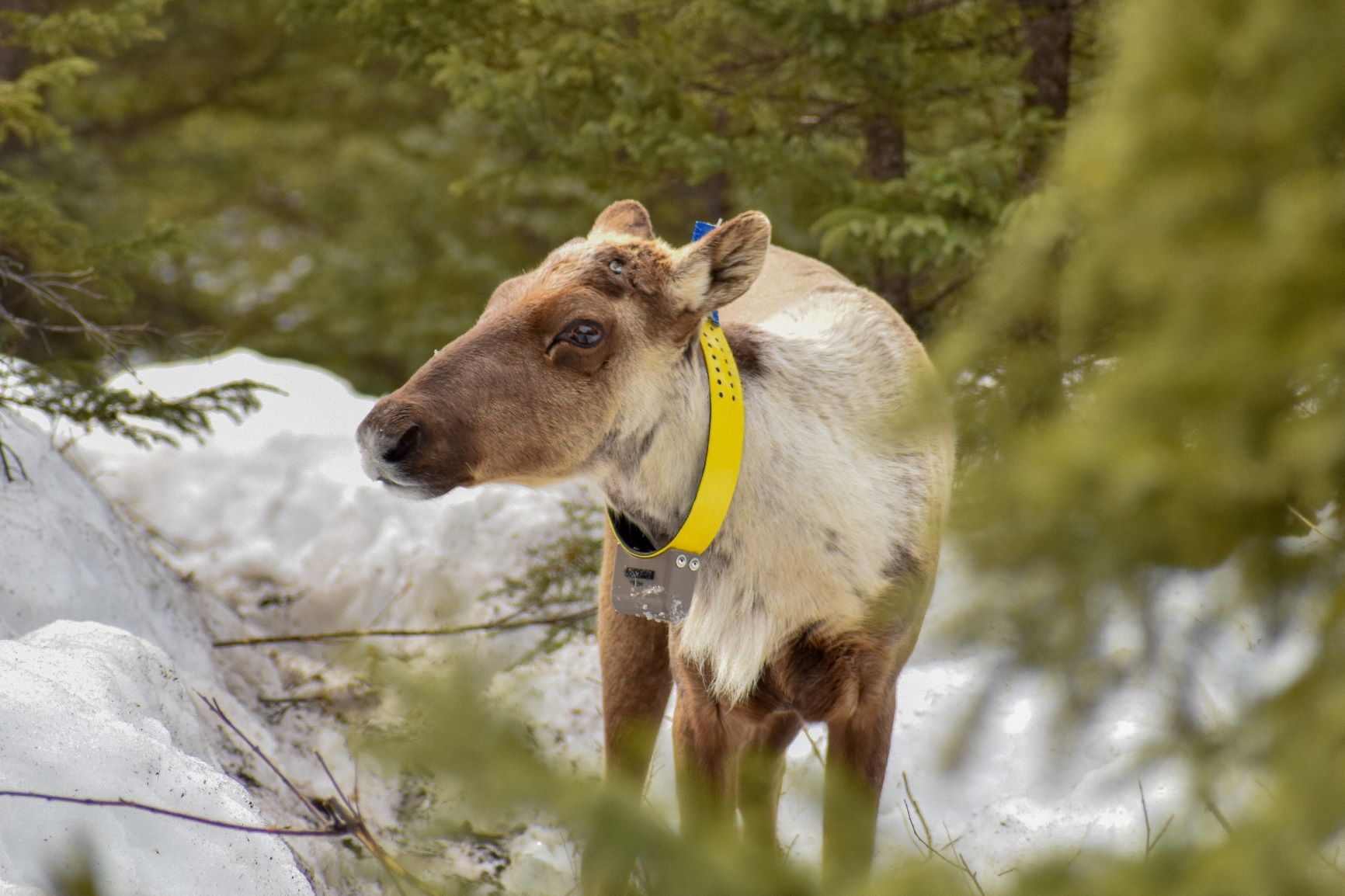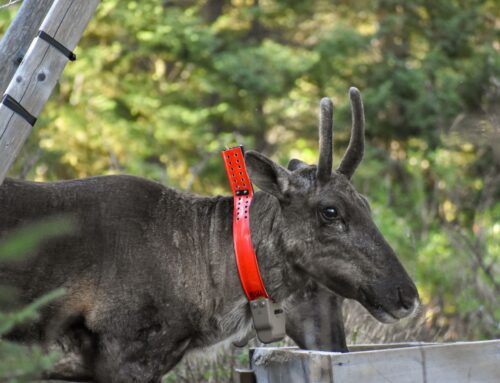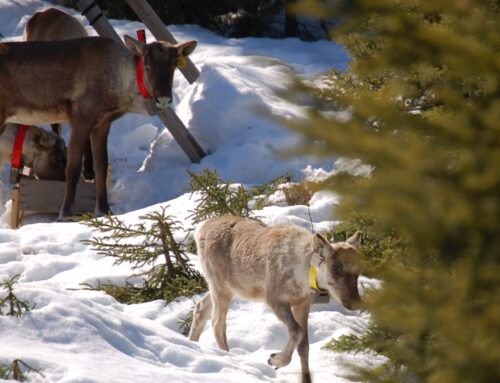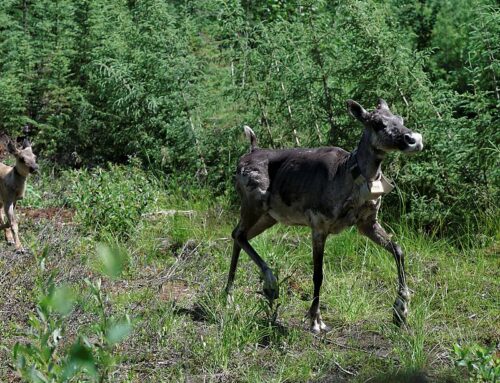There is a lot of talk these days about the woodland caribou, an animal species classified as vulnerable in Quebec. The problem is far from new, but our current government, like most of its predecessors, prefers to launch studies and consultations, instead of applying the only effective remedy: tightening the screws on the forestry industry.
Published on May 28, 2022
Sources : Clément Fontaine, Le Nouvelliste Numérique
The largest natural predators of the caribou are the grey wolf and the black bear, but the white man who eats its habitat remains its worst enemy, according to the native communities. Indeed, this magnificent cervid is, above all, a victim of the mismanagement of the Ministry of Forests, Wildlife and Parks, which has long favoured the interests of the private sector over the preservation of biodiversity.
Quebec, like Canada, cuts down twice as many trees as it consumes. Although secondary and tertiary wood products have grown in recent years, they are not enough to curb the industry’s appetite for lumber exports to the United States.
The same is true for several other sectors of our economy, such as mining, the second most important cause of the decline of woodland caribou. Quebec is struggling to move beyond its traditional role as a provider of natural resources, which are not inexhaustible.
The government receives royalties on the export of raw materials, but the population is seeing its access to old-growth public forests diminish, especially in the south of the province. Judging by the low number of protected areas announced, it is unlikely that our Minister of the Environment will meet the targets he has set for 2030.
Add to that the spruce budworm epidemic, which sometimes seems to be an excuse for industry to make destructive cuts to the landscape.
Jobs artificially maintained
Workers and their unions justify the overexploitation of the forest by the need to preserve jobs in the regions. However, in a context of labour shortage, it should not be so difficult to find other jobs.
Already a few decades ago, analysts predicted a profound transformation of the job market to meet the needs of a changing society. A worker can no longer expect to earn a living in the same way until retirement age. It is up to individuals to re-qualify themselves if necessary to remain useful to the community, not the other way around. And it is up to the government to facilitate these career changes.
Too many forestry workers seem unable to consider doing anything other than cutting trees with machinery that devastates everything in its path, multiplying access roads that, once abandoned, contribute to the degradation of the forest ecosystem.
In addition to being a threat to fragile plant species conservation areas and recreational tourism activities, the forest industry’s zeal can only harm wildlife. The woodland caribou, which is kept in pens to prolong its survival, is just one sad example.
Continued waste
Pulp made from softwood chips is used for both newsprint and flyer printing. While the demand for the first use is decreasing due to the progressive abandonment of the physical medium by our daily newspapers, the production of circulars manages to maintain itself, especially thanks to the famous Publisac.
Quebec is probably the only place in the world where every household receives a large package of unsolicited circulars every week, which they are able to consult on the Internet using a computer, a tablet or a cell phone.
Montreal has just sent a strong signal with a bylaw that will limit the distribution of Publisac to residents who request it, starting in May 2023.
In addition to the Publisac, there are other advertising materials that are automatically placed in our mailboxes. And not all of them come from small local businesses, which is the most economical way to promote themselves.
Businesses and unions still agree that this other form of waste should continue in order to keep jobs, even if they are less useful or even harmful. Recycling sorting plants no longer know what to do with all the flyers piled up in the blue bins, many of which have not even been removed from their plastic wrapping.
Favouring biomass
At a time of energy transition, more forest residues from cutting and sawing would benefit from being recovered in the form of biomass (not to be confused with biomethane, which is derived from the decomposition of organic matter, such as that from domestic dumpsites).
Businesses and governments, supported by conservation organizations such as Nature Quebec, are increasingly looking to residual forest biomass as an environmentally friendly alternative to fossil fuels.
Instead of becoming bulky printed matter, wood waste can be used to produce heat, and therefore energy. Biomass can thus be used to replace fuel oil, shale gas and propane, where the use of hydroelectricity alone is not competitive. For example, in agriculture, for certain industrial uses and for heating buildings.
Exporting biomass in pellet form is still relatively environmentally friendly when it is used to replace coal in power plants abroad.
The canary in the mine
During the recent public hearings of the Independent Commission on Woodland Caribou held in Saguenay-Lac-Saint-Jean, the representative of the regional group Mères au front was the first to question the commissioners during the presentation of briefs. Anne-Marie Chapleau did not hesitate to refer to the caribou as the canary in the mine. A reference to the preventive role that this bird once played in the dangerous coal mines.
A striking image that brings us back to the dark prognosis of mass extinction.
What are we waiting for to echo this mother of a family?
Humans, woodland caribou, beluga whales, chorus frogs and many other living creatures are in the same vulnerable boat. They are all in the same boat, in the same ark, so to speak. However, only the first of these species, ours, has the power to change things.





